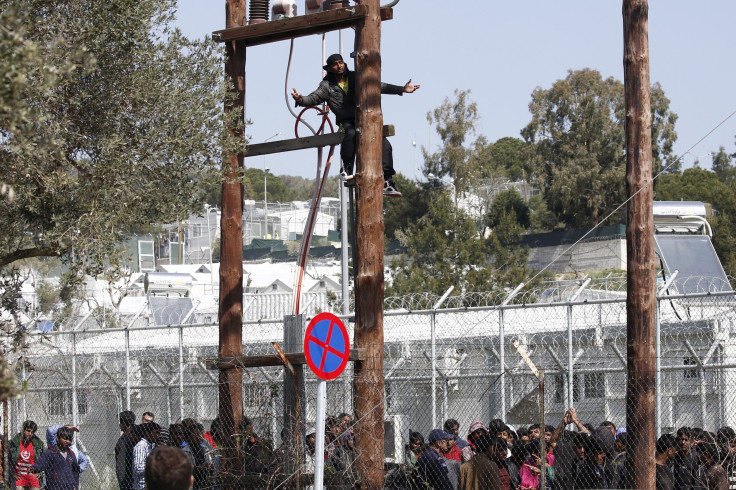EU-Turkey Deal Causing Suicides? Refugees, Migrants Threaten To Kill Themselves To Avoid Greece Deportation

Some refugees and migrants facing deportation from Greece to Turkey under a new deal to help stem the flow of people seeking asylum in Europe would rather kill themselves than return to the Middle East, according to multiple media reports. Refugees were being sent to Turkey starting Monday, but many oppose the agreement that they say would return them to the very situation they were trying to escape in the first place.
“If they deport us, we will kill ourselves,” Afghan refugee Souaob Nouri told the Guardian. “We will not go back.” The European Union-mandated agreement specifically targets refugees who entered Europe illegally from Syria via the Aegean Sea and Mediterranean Sea, but asylum-seekers from elsewhere in the Middle East and parts of Africa are also facing deportation.
The apparent trend of asylum-seekers threatening suicide in opposition of the European Union-mandated agreement continued Wednesday on the Greek island of Lesbos, where a Pakistani migrant who is scheduled to be deported said he would hang himself before being sent to Turkey, reported Pakistan Today. Two other Pakistanis attempted suicide when they got to Turkey on Monday, the same day the EU deal went into effect and refugees and migrants began being shipped from Greece to Turkey.
#Pakistani refugees in #lesvos demonstrating against being hold in Moria and deported to Turkey #Suicide threats pic.twitter.com/Kdp4G8DSqW
— Ali Khalaf (@Baitona) April 5, 2016
While the issue of refugees and migrants threatening suicide over being blocked from proceeding into farther into Europe has been highlighted lately, the practice was seemingly first brought to light earlier this year when two men, reportedly also from Pakistan, tried to hang themselves in a busy Athens square. The men were prevented from following through with their apparent suicide attempts in late February, Al Jazeera reported.
"It [the suicide attempt] happened at midday in Victoria Square," a police spokesperson said. "They probably wanted to show their objection to the fact that they cannot leave [Greece]."
Pakistani man threatens suicide as anti-deportation protests grow https://t.co/31SPhgpkDe #refugeesGr #Lesbos #Moria pic.twitter.com/WgemFwsYLW
— Teo Kermeliotis (@Teo_Kermeliotis) April 6, 2016
A local psychologist said at the time it was not surprising that refugees and migrants would apparently rather choose death than face a future in the Middle East. "The situation is increasingly becoming worse ... so I don't find it strange that hopeless people with no home are willing to attempt to cut razor-wire fences or even commit acts [like the one today] — irregardless if they have mental health issues or not," said Yiannis Chatzidakis, who works to prevent suicide in Greece.
The EU-Turkey agreement only applies to Syrians and stipulates that Turkey take in migrants and refugees, leaving the rest of the refugees and migrants in Greece who are ineligible for asylum in a state of limbo.
“The conversation so far has only really been about Syrians, and that’s a major issue of concern,” Anna Shea, a researcher on refugee rights for Amnesty International in London, told International Business Times last month. “Hundreds of thousands of other people have even less clear legal status, are even more vulnerable and have even less support.”
© Copyright IBTimes 2024. All rights reserved.






















